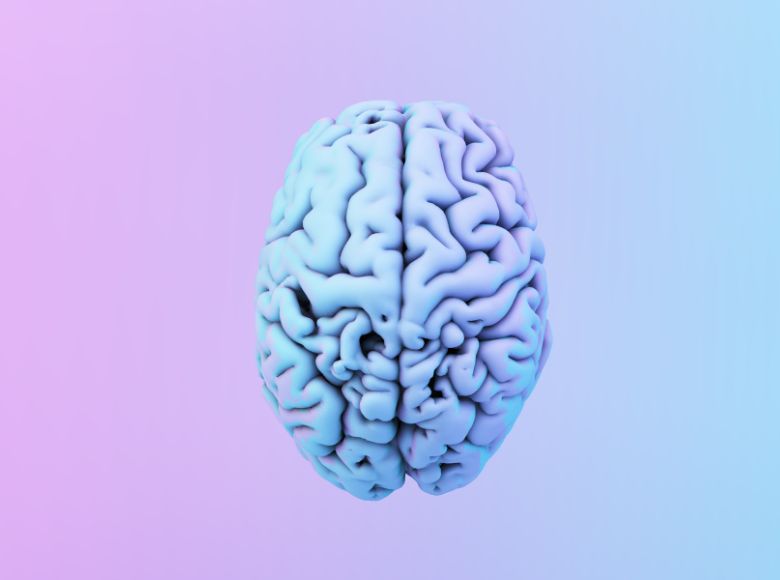The Truth About Hashimoto’s and Brain Fog
Today, you:
- Found your car keys in the fridge.
- Walked into the laundry room with an empty clothes basket – only to forget why you came in. Despite the washer helpfully indicating it had finished its cycle.
- Forgot you had a dentist appointment. Or that you had to call for the latest lab results about your thyroid.
And it’s only noon.
Once, you may have chalked it up to “one of those days” and made sure you laughed about it – but you’ve been having those days an awful lot.
- You keep forgetting errands or appointments.
- New information takes a while to sink in, and you’re always tired.
- Your brain feels fuzzy like you’ve wrapped a blanket around your head.
Odds are, you have brain fog.
Also – it may have something to do with that pesky thyroid.
Wait, really?
Can thyroid problems cause brain fog?
What Is Brain Fog?
I often describe the sensation of brain fog as feeling that your head is wrapped in cotton candy, and having your thoughts come much more slowly. You often feel like you’re detached from the world, moving on a separate – and more remote – level to everyone else. Like that one time your doctor gave you the stronger painkillers – except it’s a permanent feeling you’re stuck with. Awful to experience.
Symptoms of brain fog include:
- Forgetfulness
- Difficulty making decisions
- Low energy
- Poor concentration
- Difficulty learning or retaining new information
- Tiredness – even after waking up
- Trouble focusing
- Irritability
Does this sound familiar? Could brain fog be the reason you catch yourself staring blankly around a room, unable to remember what you were supposed to be doing in there?
“But Dr. Joni, what is brain fog, and why does it happen?” I hear you cry.
The truth is that brain fog can be an indicator of inflammation in the brain. Think about it – when you have inflammation in your joint or in a small cut, it hurts – and quite often feels hot and swollen. Now, you don’t have any pain receptors in your brain, so it can’t tell you that it hurts. But your brain fog symptoms are a call for help – something isn’t right! Basically, brain inflammation causes everything to slow down, as it impacts the speed at which your brain neurons communicate.
Now inflammation in the brain sounds scary – and you may now be worrying about Alzheimer’s disease. But common causes of inflammation in the brain include sleep disorders, diet, stress – and your thyroid.
How Does Hypothyroidism Affect the Brain?
Your thyroid is a tiny powerhouse that sits below your larynx. When it’s working properly, the gland excretes hormones that have a huge influence on your body.
Your thyroid is responsible for:
- Heart function
- Blood clotting
- The rate your body uses energy
- Digestive function
- Bone maintenance
- Mood
- Reproductive health
- Brain development and health
But when hypothyroidism occurs – such as Hashimoto’s disease – your thyroid no longer produces enough T3 and T4 hormones to trigger and control all of these processes. For women, that means our estrogen levels may drop. Now, you may know that estrogen is a powerful sex hormone – it thickens the lining in your uterus during your monthly cycle, and reduction in production brings on perimenopause. But estrogen also works hard to keep your brain healthy.
Estrogen regulates cognition, body temperature, feeding, and sexual behavior. More amazingly, the hormone acts as an anti-inflammatory in the brain – as it reduces the number of brain immune cells on active patrol. But when your levels of estrogen drop, these immune cells are not kept in check, causing increased inflammation. And brain fog. If you’re dealing with the double-whammy of hypothyroidism and menopause, it’s not surprising that you’re feeling so bad!
The Link Between Hashimoto’s and Serotonin – and Other Neurotransmitters
Neurotransmitters are a type of chemical messenger your nervous system uses to send instructions to the rest of your body and are how your body can communicate with itself. Different neurotransmitters are used for different functions, but I’m focusing on four which play a part in the relationship between your hypothyroidism and brain fog.
- Serotonin
Notorious as the good, happy stuff your body makes, serotonin is crucial for mood stability, feelings of well-being, and even a good night’s sleep. Low estrogen can have a poor effect on serotonin levels, and there is evidence that low thyroid activity can cause a reduction in serotonin receptor sensitivity in the brain. The lower your serotonin uptake, the more likely that you may experience low moods or depression. You can improve your serotonin uptake through diet and lifestyle changes.
- GABA
GABA stands for gamma-aminobutyric acid, and this is the neurotransmitter that triggers a calm state, free of anxiety – crucial to your well-being. The neurotransmitter does this by blocking electrical impulses between nerve cells in the brain. Unfortunately, patients with hypothyroidism are more likely to have lower levels of GABA. GABA can be increased through diet and supplements – which may help not only with getting through menopause but also dealing with empty nest syndrome!
- Acetylcholine
A crucial neurotransmitter for learning and memory, menopause, or thyroid function can seriously deplete your acetylcholine levels – causing the frustrating brain fog moments you and I hate. Fortunately, acetylcholine levels can be boosted by eating healthy fats and taking supplements. So put that low-fat yogurt down!
- Dopamine
Known as the pleasure neurotransmitter, dopamine allows you to feel a sense of reward and real pleasure. Hypothyroidism results in diminished dopamine – which may leave you feeling like you have low self-esteem, low motivation or cause moments of rage. Diet and lifestyle changes should correct this deficiency.
See below how to test your neurotransmitters.
A major reason your neurotransmitter levels drop when you develop hypothyroidism is that your thyroid plays a part in synthesizing amino acids. But when your thyroid underfunctions, there are not enough amino acids to use in making neurotransmitters. So you have to make it up with careful food habits and supplements.
4 Ways to Fix Brain Fog
So what can you do about hypothyroid-related brain fog? Reading about your neurotransmitters may have given you a clue – most of the ways you can manage the symptoms of Hashimoto’s or other hypothyroidism are in your power! Your body is amazing, and you have the tools to improve your health.
Start with:
- Cutting out grains and gluten: Okay, it may seem like gluten is everyone’s scapegoat, but if you have gluten sensitivity, you could be making yourself sick by eating grains – causing gut issues and inflammation of the brain. Resulting in brain fog. Do you think it’s worth it? A recent study showed that a gluten-free diet minimized the progression of Hashimoto’s. Try eliminating gluten from your diet for 60 days and see what happens.
- Testing and Not Guessing: A convenient saliva/urine test kit can be sent to your home. You provide the samples, send them to the lab directly, and learn meaningful information about your neurotransmitters: serotonin, GABA, dopamine, and acetylcholine. Plus, how your sex hormones and cortisol are “dancing” with your neurotransmitters on a circadian rhythm.
- Feeding the Brain: Essential fatty acids: particularly EPA and DHA, are both found naturally in Omega 3 fatty acids. DHA is the most abundant fat in the brain and is plentiful in wild salmon, halibut, sardines, scallops, and herring.
Thiamine: helps metabolize glucose, which the brain needs for energy. Thiamine-rich foods include trout, lean pork, macadamia nuts, sunflower seeds, and green peas.
B12 is needed to maintain the sheaths surrounding the nerves that facilitate communication between neurons and help prevent nerve damage. It is found in meat, Swiss cheese, and eggs.
Folate: Helps prevent depression and maintain cognitive function. Found in beets, lentils, cauliflower, parsley, spinach, and collard greens.
Nutrients that support Serotonin: St. John’s, SAMe, 5-HTP. If 5-HTP cannot be tolerated, I recommend L-Trytophan, which supports serotonin, a more gradual dose-responsive cure. Wort. - Dealing with your stress: While you may think that you thrive on your stress, I’m here to tell you that’s nonsense! Long-term stress can do a serious number on your brain, adding to your brain fog. On top of that, it strains your adrenal glands – which are normally your thyroid’s best buds while slowing down hormone production in your thyroid. The result? An even slower metabolism and reduced thyroid function. So maybe it’s time to reprioritize?
Enrolling in my Thyroid M.V.P. Program – Measurable. Verifiable. Progress!™: Because you don’t have to go it alone! Don’t spend hours researching through Google and trying to decipher all the medical-school jargon because you feel let down by your doctor or the medication you’ve been prescribed for hypothyroidism. Do you want answers? I’ve got ‘em! I’ve spent years studying hypothyroidism – and, more crucially, the science-based holistic treatment practices I’ve used to treat hundreds of women – including myself. The Thyroid M.V.P. Program™ is an online one-to-one course, but you’ll meet your fellow Thyrosisters™ during friendly Q&As and through our exclusive Facebook group. The results are life-changing. So come join us!








